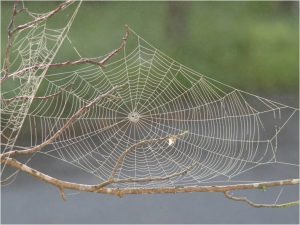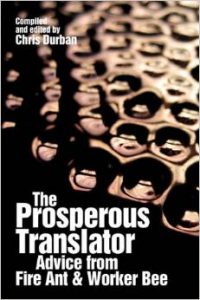I’m a little worn out from writing blog posts for a week straight. I started off thinking, “this is all just information already in my own head, so I’m just going to first write everything and go back to edit later” and thought that I would have the basic skeleton of the blog complete within a week. I was hugely mistaken. *Sigh*… It’s taking much much longer than I thought and is really tiring. (But I am enjoying it as well!) So, this is a post to give myself a break… :D
I’ve sometimes thought about how I could introduce the work and life of a translator to other people, but it was difficult to explain because most of the people I know have regular workplace jobs and their pattern of life is so different from mine. Well, nobody is forcing me to explain, but if I’m going to explain anyway, I wanted to give a really interesting explanation. Another thing is that once it becomes clear to you what kind of a life a translator leads, I think you will be able to set more definite strategies and plans regarding your own goals, time management, and how to enjoy life. So, I’m going to try to explain using insect stories.
First, let’s start with the spider’s story.
Spiders have a bad reputation, but if you give a spider a chance, you will find that he is quite a smart guy. Looking at the business model of the spider, we can see that he makes a lot of initial investments. He builds his spider web after choosing a good place. He creates a very special substance in his body and pulls it out to create a beautiful and bold design (I think spider web material is really something they should patent…).

What does he do next? He waits. In this day and age, there is nothing less popular and more pathetic than waiting around. Korean people in particular are the worst at waiting. However, if the spider selected a good place and built a good spider web, waiting is actually a fairly decent strategy. While waiting, the spider can sleep or play and doesn’t use up unnecessary energy so he doesn’t lose anything even if he doesn’t get too many visitors.
Then, if a prey gets caught in the web, it is all his…
If you look at the spider’s business from the perspective of insects like ants and bees who are always running and flying around working endlessly, it can seem almost unethical. To be honest, I don’t know if ants and bees really work that hard. But that’s at least what we’ve been told. It is also the kind of work ethic we’ve learned in Korea since the Saemaeul (New Village) Movement. We were taught to learn from the ants and the bees to wake up at the break of dawn and work tirelessly and pour out your sweat until late at night… I don’t intend to disparage that method of working, but couldn’t shake the thought that working hard wasn’t everything even when I was quite young.
But the times are turning and the industrial era (era of the chimney, of the continuous production process, and of the industrial age) is gradually coming to an end and we have arrived at the era of information and knowledge. In this era, more value is created from standing (or sitting?) still and thinking, deciding on a direction, and acquiring and creating knowledge than from diligent physical labor.
[bctt tweet=”More value is created from sitting still and creating knowledge than from diligent physical labor.” username=””]
For this kind of activity, up-front investment (especially education, both formal and informal) is essential. In that sense, it can be said that the spider, who is already conducting a successful business this way, is our business model.
[bctt tweet=”The spider is the freelance translator’s business model.” username=””]
The spider creates a special substance inside its body that other insects dare not even imitate, considers its surroundings and selects a good place to spin its web, and then it waits. When the opportunity comes after waiting, it takes care of business diligently with confidence and professional workmanship.
I think the business style of a translator has many similarities to this spider. (Of course this is strictly a metaphor, so you shouldn’t try to apply it in too much detail. There is a lot of difference, mainly because translators don’t eat anyone or create spider webs.) When looking at the business style of the spider in relation to translators, the first thought that comes to mind is the “experience of a translator”. I’m talking about skills. Skills that are like spider web and knowledge to create something with a structure like the spider web, things like that.
Another thing that comes to mind is that you must not consider waiting as something pathetic or embarrassing. I’ve told you this previously, but deciding not to do something is also a very important and necessary decision to make. Believe me, you can do many productive and enjoyable things while you are waiting and not working.

For a while work pours in and then for a while you will have no work. Because this kind of pattern repeats, what you will do, with what kind of attitude, with what kind of thoughts, and with what kind of mindset is a very important issue. I think that this is the key to a translator’s long-term success or failure. If, at this time, you’re shrouded in anxiety and end up getting into unnecessary things and taking on jobs regardless of principles, you will have no time to rest. You also won’t have time to continue to develop yourself long-term even though you should. You will then have no choice but to always remain at the same low level. Writing about the spider makes me see it in a different light. And I am infinitely curious as to where the spider learned such a great strategy.








